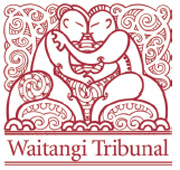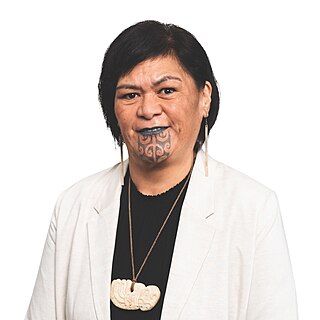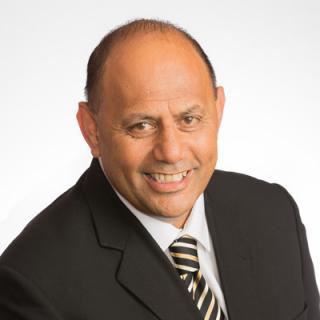Legislative history
Introduction
On 23 June 2022, Broadcasting Minister Willie Jackson introduced the draft Aotearoa New Zealand Public Media Bill to formally merge Radio New Zealand and TVNZ into a new public media entity called Aotearoa New Zealand Public Media. The new entity will be a non-profit autonomous Crown entity and is expected to come into existence on 1 March 2023. Under the proposed legislation, RNZ and TVNZ would become subsidiaries of the new entity, headed by a single board. The ANZPM would be supported through a mixture of commercial and government funding. The ANZPM would also operate under a charter outlining goals and responsibilities, with editorial independence being enshrine in its statutory legislation. The Government also allocated NZ$370m over a period of four years in operating expenditure and $306m in capital funding from the 2022 New Zealand budget to supporting the new public media entity. [5] [6]
First reading
On 26 July 2022, the Government's Aotearoa New Zealand Public Media Bill passed its first reading at the New Zealand Parliament. The Labour, Green, and Māori parties supported the legislation. The bill's sponsor Jackson claimed that the bill would allow public media to keep delivering for future generations while combating misinformation in increasingly competitive media environment. The opposition National and ACT parties opposed the bill, claiming that it would lead to less diversity within the New Zealand media landscape and also questioned its independence from the Government. The Public Media Bill was referred to Parliament's Economic Development, Science and Innovation select committee, with a six-month period for people to make submissions regarding the bill. [7]
Select committee stage
By early October 2022, the Aotearoa New Zealand Public Media Bill had received 980 submissions. Submissions supporting the new public media entity claimed that it would strengthen public media while submissions opposing the legislation claimed that the new media entity could distort the media market, undermine commercial competitors, and be subject to political interference. [8] In their submissions, Stuff chief executive Sinead Boucher, MediaWorks New Zealand chief executive Cam Wallace, and Warner Bros. Discovery Senior Vice President Glen Kyne expressed concerns that the proposed media entity could undercut commercial media competitors. [9] [10] In addition, NZME editor Shayne Currie and Wallace called for a thorough cost-benefit analysis of the proposed media entity. [9]
TVNZ CEO Simon Power supported the creation of a new public media entity but expressed concerns about what he perceived as insufficient safeguards about its editorial independence and public trust. [10] [9] While supportive of the aims of the legislation, RNZ CEO Paul Thompson and RNZ board member Jane Wrightson expressed concerns about the media entity's editorial independence. [9] Thompson also regarded the proposed media entity as an opportunity to rebuild the country's public media mandate in the midst of a "volatile" media market where global platforms operated with "unbridled power." He said that new public media entity would be required to collaborate with the wider media sector to ensure a "healthy and diverse" media ecosystem. Save RNZ Concert submitter Elizabeth Kerr sought information about RNZ Concert's place within the new media entity. [10]
Victoria University of Wellington media studies Associate Professor and Better Public Media Trust board member Peter Thompson expressed concerns that the ANZPM Bill failed to uphold the proposed public media entity's non-commercial objectives. He took issue with what he regarded as insufficient government funding to make up for the expected decline in commercial revenue. Thompson also regarded the Bill's provision that ANZPM make content predominantly free to access as an insufficient safeguard against subscription-based service. He also expressed concerns about the Bill's lack of ring fencing for the proposed public media entity against budget cuts caused by changes in government. Thompson also disagreed with the Bill's proposal to make ANZPM an Autonomous Crown Entity (ACE) on the grounds that the organisation would still be subject to ministerial directions. Instead, he proposed that the public media entity be overseen by an independent regulatory body that would ensure the organisation was complying with its charter. [8]
On 8 February 2023, Prime Minister Chris Hipkins confirmed that work on merging RNZ and TVNZ into ANZPM would halt immediately, stating that "Support for public media needs to be at a lower cost and without such significant structural change." Hipkins also confirmed that the two public broadcasters would receive additional governmental funding. [2] [3] Prior to the cancellation, the Government had initially set 1 March as a deadline for passing the Bill into law, with the new entity becoming fully operational in July 2023. The Government subsequently extended the Bill's deadline to 1 July 2023. [2]

The Waitangi Tribunal is a New Zealand permanent commission of inquiry established under the Treaty of Waitangi Act 1975. It is charged with investigating and making recommendations on claims brought by Māori relating to actions or omissions of the Crown, in the period largely since 1840, that breach the promises made in the Treaty of Waitangi. The Tribunal is not a court of law; therefore, the Tribunal's recommendations and findings are not binding on the Crown. They are sometimes not acted on, for instance in the foreshore and seabed dispute.

Television in New Zealand was introduced in 1960 as a state-run service. The broadcasting sector was deregulated in 1989, when the Government allowed competition to the state-owned Television New Zealand (TVNZ). There are currently three forms of broadcast television: a terrestrial (DVB-T) service provided by Freeview; as well as satellite (DVB-S) and internet streaming (IPTV) services provided nationwide by both Freeview and Sky.

Television New Zealand, more commonly referred to as TVNZ, is a television network that is broadcast throughout New Zealand and parts of the Pacific region. All of its currently-operating channels are free-to-air and commercially funded.

Radio New Zealand, commonly known as RNZ or Radio NZ, is a New Zealand public-service radio broadcaster and Crown entity that was established under the Radio New Zealand Act 1995. It operates news and current-affairs network, RNZ National, and a classical-music and jazz network, RNZ Concert, with full government funding from NZ On Air. Since 2014, the organisation's focus has been to transform RNZ from a radio broadcaster to a multimedia outlet, increasing its production of digital content in audio, video, and written forms.

Nanaia Cybele Mahuta is a New Zealand former politician who served as the Minister of Foreign Affairs of New Zealand from 2020 to 2023. A member of the New Zealand Labour Party, Mahuta served as the Member of Parliament (MP) for 27 years, at first for the party list and then for three different Māori electorates, latterly for Hauraki-Waikato. Mahuta served as Minister of Foreign Affairs from 6 November 2020 to 11 November 2023. She received international recognition as the first woman to hold the Foreign Affairs portfolio. In October 2022, Mahuta became the Mother of the House, having served continuously in the House of Representatives since the 1996 general election. She lost her seat in parliament in the 2023 general election to Te Pāti Māori candidate Hana-Rawhiti Maipi-Clarke, who was subsequently Baby of the House.

William Wakatere Jackson is a New Zealand politician and former unionist, broadcaster and Urban Māori leader. He was a Member of Parliament for the Alliance from 1999 to 2002 and is currently a Labour Party MP, having been re-elected in 2017.

The Oranga Tamariki Act 1989 or Children's and Young People's Well-being Act 1989 is an Act of the New Zealand Parliament that was passed in 1989. The Act's main purpose is to "promote the well-being of children, young persons, and their families and family groups." In June 2017, the New Zealand Parliament passed amendment legislation renaming the bill the Oranga Tamariki Act 1989.

Christopher John Hipkins is a New Zealand politician who has been serving as leader of the New Zealand Labour Party since January 2023 and leader of the Opposition since November 2023. He was the 41st prime minister of New Zealand from January to November 2023, previously serving as the minister for the public service and minister for education from 2017 to 2023, and the minister for health and the COVID-19 response from 2020 to 2022. He has been the member of Parliament (MP) for Remutaka since the 2008 general election.

David Breen Seymour is a New Zealand politician who has been the Leader of ACT New Zealand and the Member of Parliament (MP) for Epsom since 2014. He currently serves as the 1st Minister for Regulation in the Sixth National Government under Christopher Luxon.
Hobson's Pledge is a lobby group in New Zealand that was formed in late September 2016 to oppose affirmative action for Māori people. It is led by conservative politician Don Brash. The group aims to redefine the position of Māori in New Zealand. This would include removing the Māori electorates, abolishing the Waitangi Tribunal, restricting tribal powers and "remove all references in law and in Government policy to Treaty 'partnership' and 'principles'".

Simeon Peter Brown is a New Zealand politician and Member of Parliament in the House of Representatives for the National Party.

Kiritapu Lyndsay Allan is a New Zealand lawyer and former politician. She was a member of Parliament (MP) in the New Zealand House of Representatives from 2017 to 2023, representing the Labour Party in the East Coast electorate.

The Minister for Media and Communications is a minister in the New Zealand Government with responsibility for the government's broadcasting and media policies, including the diversity and accessibility of broadcast content, broadcasting standards, the regulation of the print media, and the oversight of state media corporations TVNZ and Radio New Zealand. The current Minister is Paul Goldsmith, a member of the National Party.

Te Pūkenga – New Zealand Institute of Skills and Technology is the largest vocational education provider in New Zealand. In February 2019, the Government announced that the country's sixteen Institutes of Technology and Polytechnics (ITPs) would merge to form the new organisation; the merger was effective on 1 April 2020. In addition to the polytechnics, Te Pūkenga also took over responsibility for industry training and apprenticeship training from nine industry training organisations (ITOs). Te Pūkenga's head office is located in Hamilton and with Peter Winder serving as acting chief executive.

The Local Electoral Amendment Act, now repealed, was an Act of Parliament in New Zealand which eliminated the requirement for holding public referendums on the establishment of Māori wards and constituencies on local bodies. The Act was supported by the Labour, Green and Māori parties but opposed by the opposition National and ACT parties. National attempted to delay the bill by mounting a twelve-hour-long filibuster challenging all of the Act's ten clauses.
Aotearoa New Zealand Public Media (ANZPM) was a proposed public media entity consisting of the New Zealand public broadcasters Radio New Zealand (RNZ) and TVNZ. After exploring the merger of the two media entities in February 2020, the New Zealand Cabinet formally decided to create the new media entity in February 2022. The Sixth Labour Government introduced legislation to create ANZPM on 23 June 2022, with plans for the organisation to be legally established on 1 March 2023. On 8 February 2023, Prime Minister Chris Hipkins, who succeeded Jacinda Ardern earlier in January 2023, announced that the proposed media entity and the merger of RNZ and TVNZ would be scrapped.

The Water Services Entities Act 2022 is an Act of Parliament in the New Zealand Parliament that creates four new water services entities to assume the water services responsibilities of territorial authorities. The Bill is part of the Sixth Labour Government's Three Waters reform programme. The Bill passed its third reading on 7 December 2022, and received royal assent on 14 December 2022.

The second term of the Sixth Labour Government of New Zealand lasted between 2020 and 2023. It was formed following the Labour Party's landslide victory in the 2020 New Zealand general election. In mid-January 2023, Prime Minister Jacinda Ardern resigned and was succeeded by Chris Hipkins. During the 2023 New Zealand general election held on 14 October, Labour lost its majority to the opposition National Party. The Government remained in a caretaker capacity until the new National–led coalition government was sworn in on 27 November 2023.

The Principles of the Treaty of Waitangi Bill, commonly known as the Treaty Principles Bill, is a government bill promoted by David Seymour of the ACT New Zealand party. It aims to define the principles of the Treaty of Waitangi and put them to a nationwide referendum for confirmation. Prior to the 2023 New Zealand general election, ACT had campaigned against the Sixth Labour Government's co-governance policies and advocated a binding referendum on co-governance.

The Fast-track Approvals Act 2025 is a New Zealand Act of Parliament that seeks to establish a permanent fast track approvals regime for a range of infrastructure, housing and development projects. The Bill is part of the National-led coalition government's efforts to overhaul resource management legislation. The Bill was first introduced into the New Zealand Parliament on 7 March 2024.













